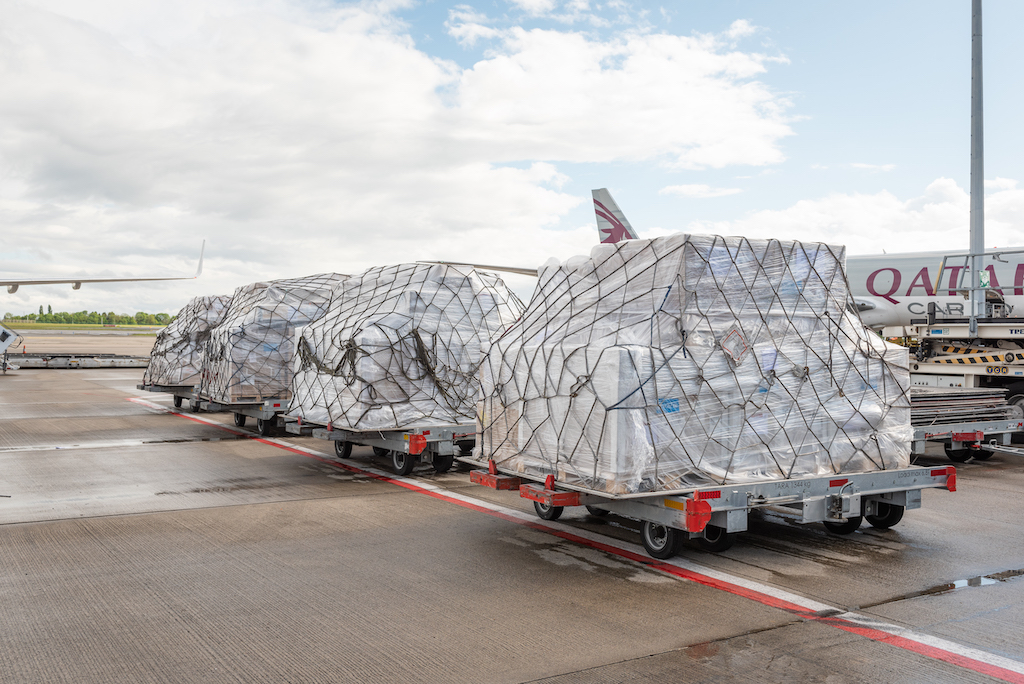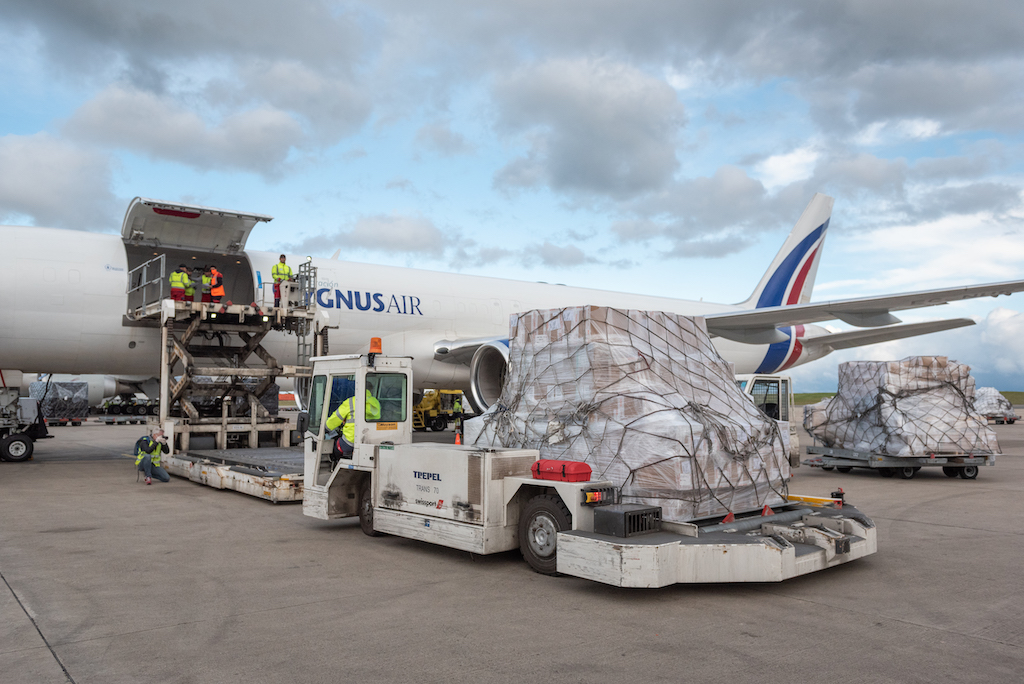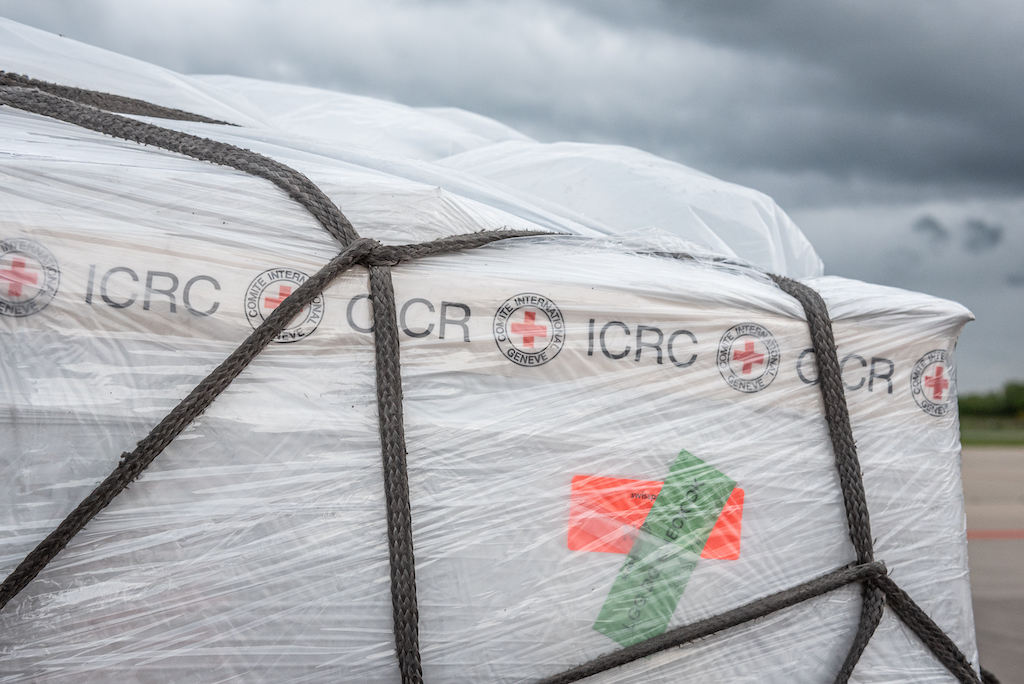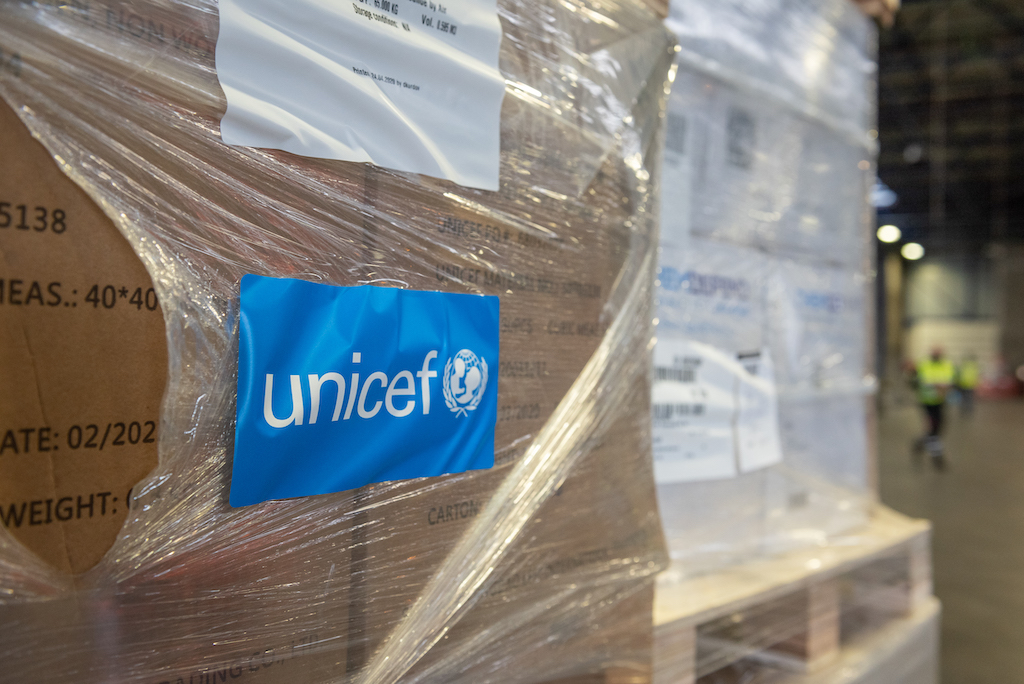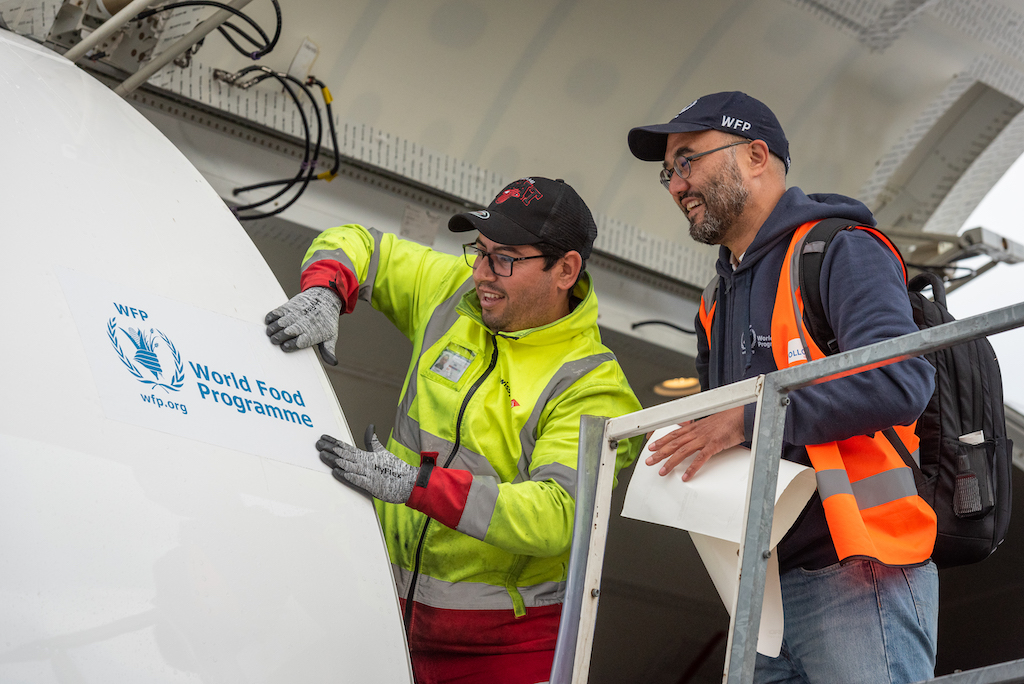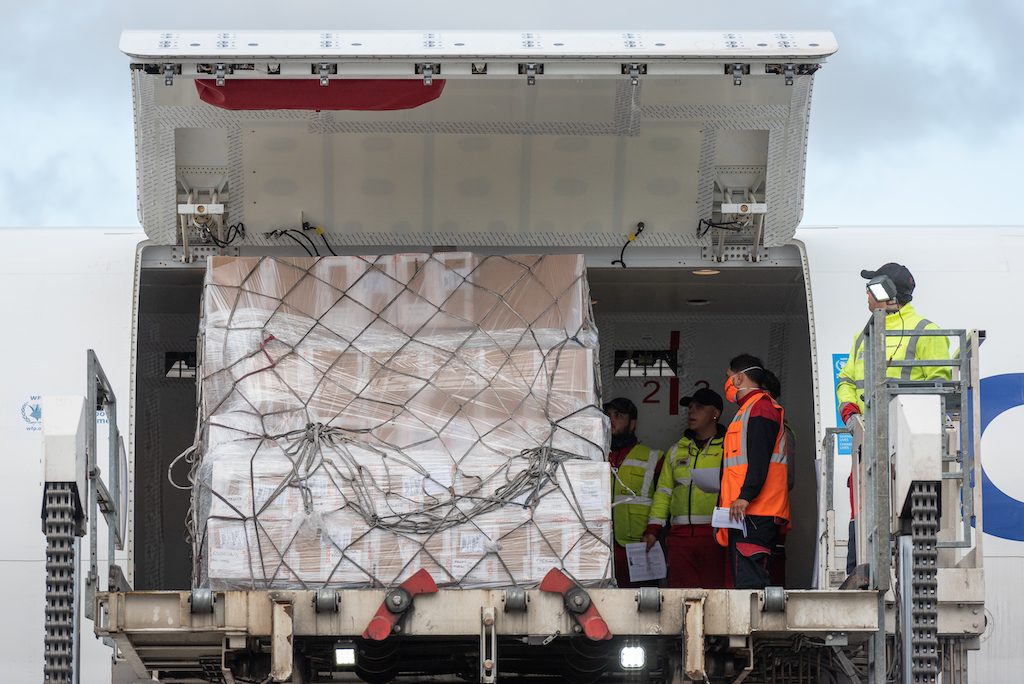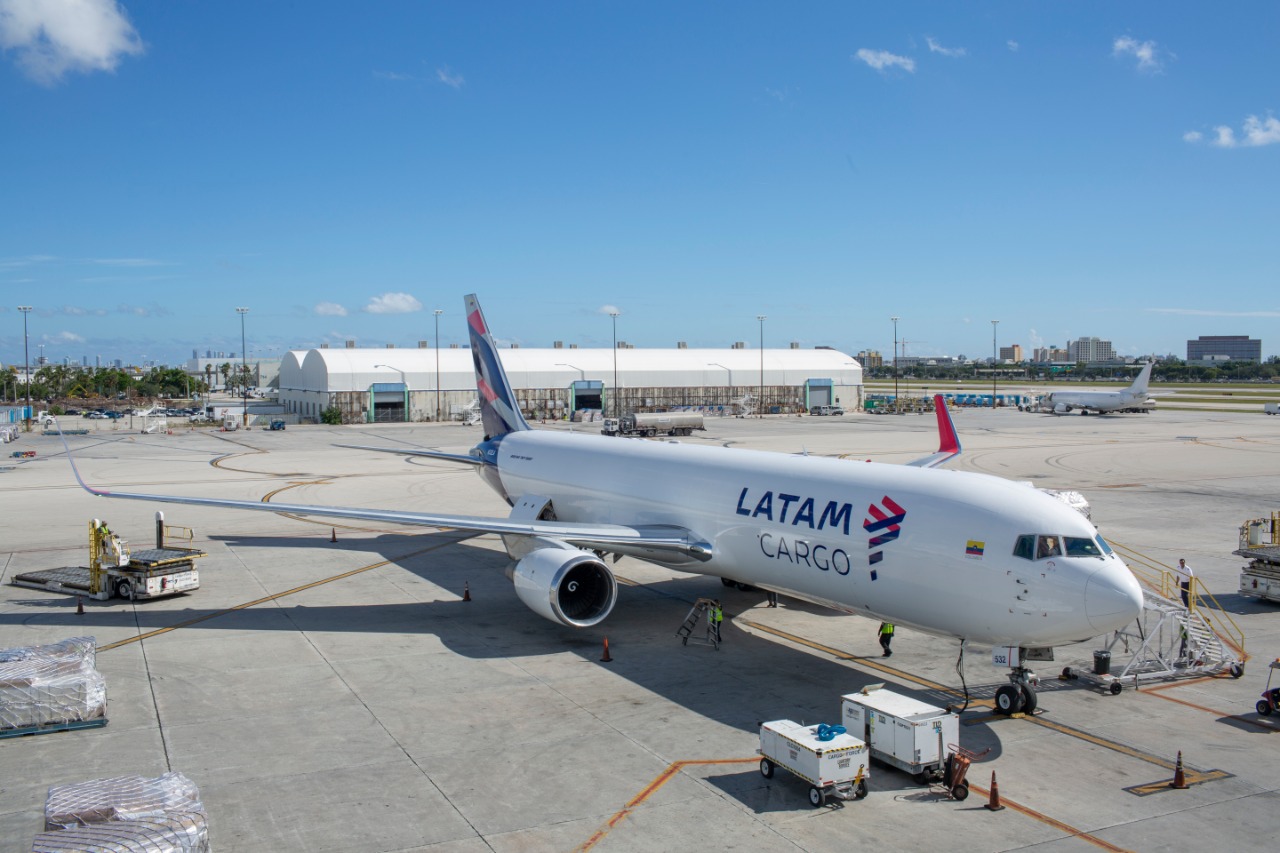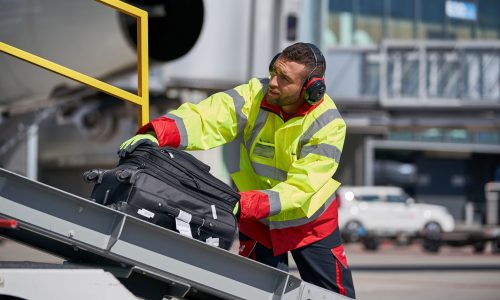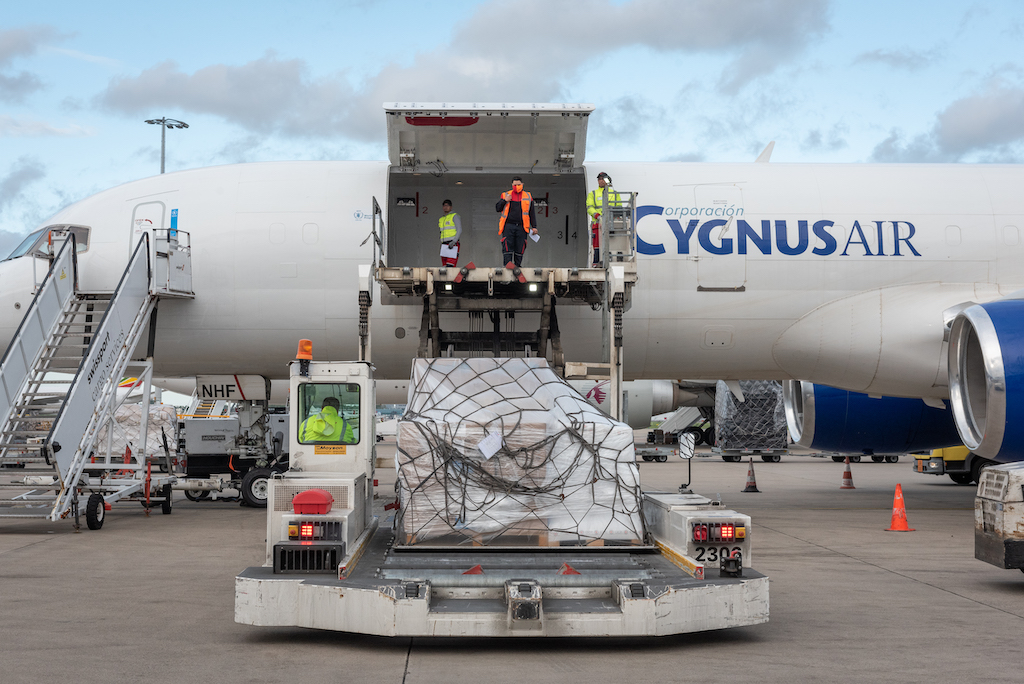
Freighter flight from newly-established Global Humanitarian Response Hub in Belgium
Equivalent of 37 B747 planeloads from Asia to global hubs over the next six weeks
A B757 cargo flight has taken off from the newly-established Global Humanitarian Response Hub in Liège, Belgium, carrying almost 16 tonnes of medical cargo and personal protective equipment.
The UN World Food Programme (WFP) chartered freighter, destined for Burkina Faso and Ghana, carried the medical goods on behalf of UNICEF and the International Committee of the Red Cross (ICRC).
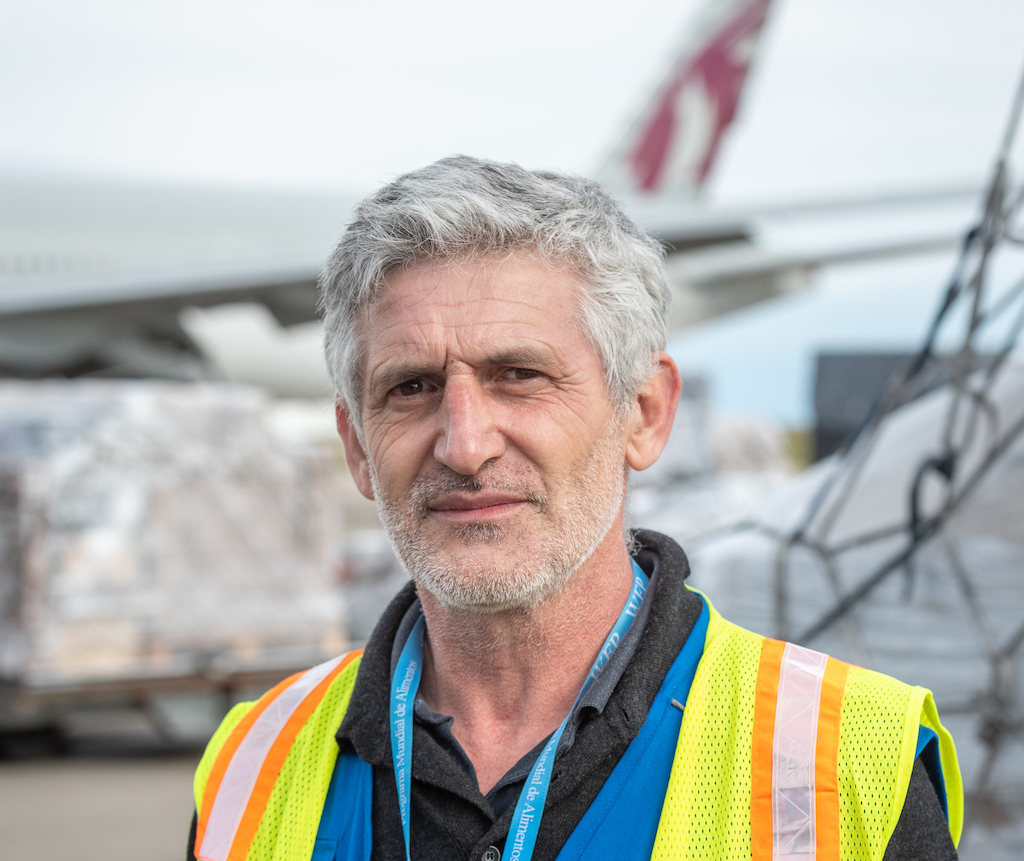
Some of the cargo will then be moved to its final destination in the Republic of Congo.
The WFP has kick-started a network of global logistics hubs which will support the entire aid community and ensure the delivery of vital medical and humanitarian supplies to developing countries at a time when commercial air transport is at a virtual standstill.
“The window of opportunity to surge medical and humanitarian equipment into Africa to curb the pandemic is closing fast,” said Amer Daoudi, WFP’s COVID-19 Response Director.
“Our global logistics support system is up-and-running, and this delivery marks the first of many cargo shipments we will fly to all corners of the globe,” he added.
WFP is setting up the logistics backbone for global COVID-19 efforts, rolling out a global hub-and-spoke system of air links to dispatch vital medical and humanitarian cargo and transport health workers to the front lines of the pandemic.
Global Humanitarian Response Hubs located close to where medical supplies are manufactured in Liège, Dubai, and China will link to regional hubs in Ethiopia, Ghana, Malaysia, Panama, Dubai, and South Africa, where a fleet of smaller aircraft will be on standby to move cargo and personnel into priority countries.
The network builds on pre-existing UN Humanitarian Response Depots (UNHRD) – including Brindisi in Italy.
WFP expects to transport the equivalent of 37 B747 planeloads over the next six weeks from China and Malaysia to 130 countries around the world. Once the service is fully up and running, as many as 350 cargo and another 350 passenger flights could fly every month.
While this flight is the first from the new hub in Liège, WFP has dispatched more than 300 tonnes of humanitarian and medical cargo to 89 countries, since late January, supporting governments and health partners in their response to COVID-19. These shipments include masks, gloves, ventilators, testing kits and thermometers.
Aid agencies and health authorities have been struggling to get supplies to fragile settings. They are hindered by the breakdown of global supply chains, the collapse of commercial air travel, border closures, and disruptions to shipping.
WFP’s logistics network will bridge the gap in essential services, ensuring humanitarian and health responders on the frontlines of the pandemic can stay and deliver lifesaving assistance.
WFP is also mounting a regional passenger air service to ferry humanitarian and health workers across East and West Africa to overcome disruptions to commercial air services, with the first flights expected in coming days.
The service will be expanded to the Middle East, Latin America and Asia soon. WFP also stands ready to set up air links with Geneva and Rome if commercial services are disrupted.
“To put it simply – without our logistics support, the response to COVID-19 in the world’s most fragile settings would stutter to a halt, leaving millions at risk,” Daoudi added.
WFP appealed for an initial $350m to kick-start global common logistics services, a call echoed by humanitarian partners in April, who highlighted the urgency of these vital WFP-led efforts.
